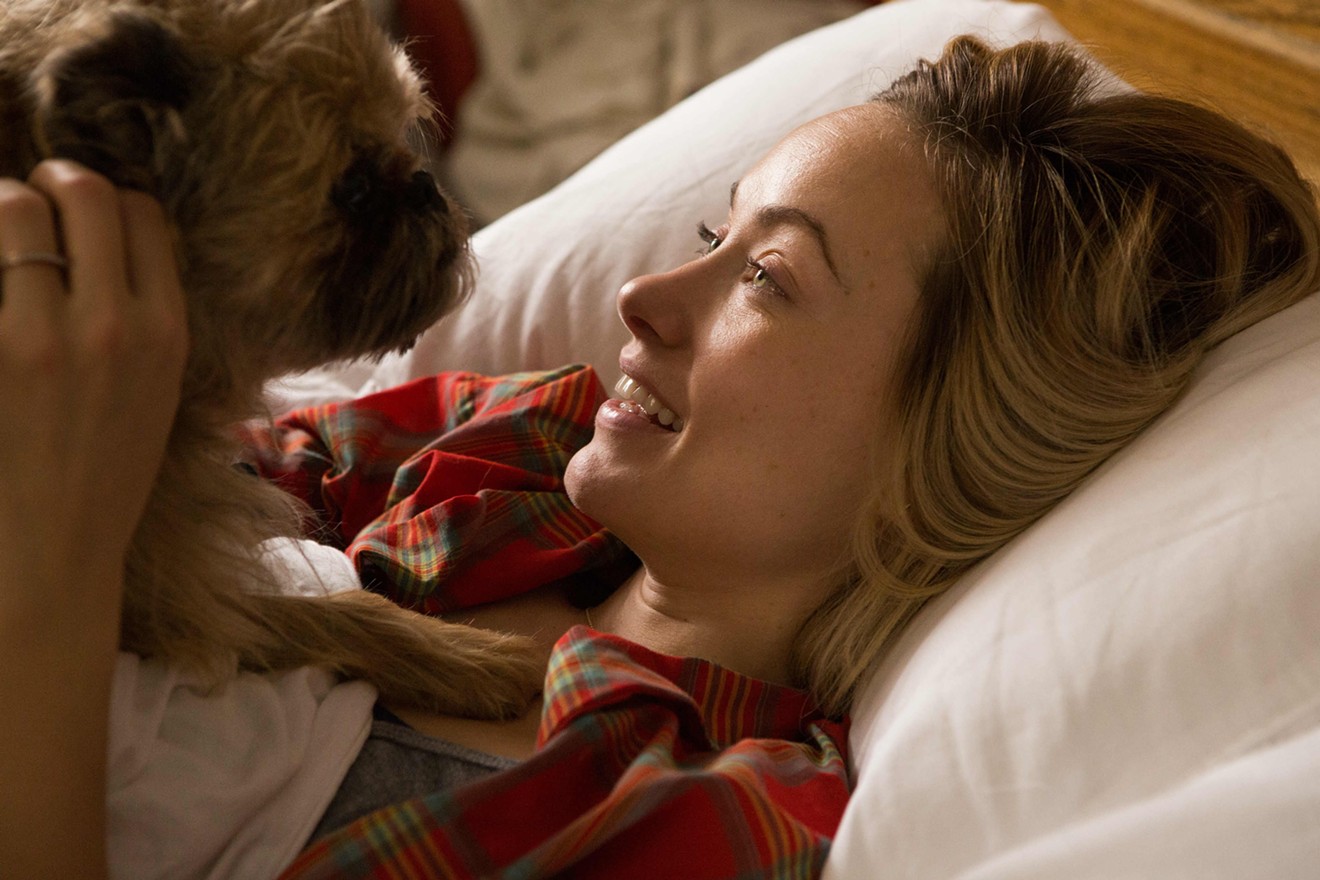There’s an old habit among actors reading a new script: Search for your character’s name and peruse only that part. But if there were ever a vivid example made for why a performer should read the whole thing, it would be Dan Fogelman’s drippy, half-baked melodrama of interconnected vignettes, Life Itself, not to be confused with the truly excellent 2014 documentary on Roger Ebert of the same name.
A plethora of monologues about life and art likely enticed the actors in this film — such as Oscar Isaac, Annette Bening, Olivia Wilde, Antonio Banderas, Jean Smart and Samuel L. Jackson. But had they read the full mind-boggling script that glosses over tragedy with an annoyingly blithe c’est la vie sheen, they would have known on the spot that this film would be the Crash-meets-Collateral Beauty false-gravitas joke of the year. There are, however, clues within individual scenes that this can’t possibly work, like when a little girl says she “craves” stability “like a fat person craves chocolate.” Or when a woman, Abby (Wilde), spouts nonsense about unreliable narrators and how they’re only used in horror or mystery movies. (Since when?) Or when an olive picker in Spain explains with the sincerity of a tourism ad that he picks only by hand as he is but a simple man, and it is the “right way.” Did I mention that much of this story takes place in Spain for some shoehorned ethnic diversity, seen through the eyes of a white man who romanticizes and caricatures other cultures? It does.
There’s a sense that Fogelman (best known as the creator of This Is Us) has been inspired in part by the broken narratives of Charlie Kaufman, as the first 10 minutes of this film feature a story-within-a-story meta fake-out with Jackson as himself, narrating the action of a screenplay written by forlorn drunk Will (Isaac). Jackson’s dialogue, here, is confounding, as the film opens on a close-up of an inconsequential, never-to-be-seen-again character in a monologue about fantasy football, while Jackson describes in voiceover how the man is a “cool” gay guy rather than, like, a gay guy who’s throwing his gayness in our faces. This scene is so bewildering that, as it unfolded, I sneaked my day planner onto my lap to check to be sure I was in the right screening room. Unfortunately, I was.
The film then settles into a less Kaufman-esque narrative. Turns out Will’s not actually a writer at all. He penned the script we saw play out in that first scene as a therapy exercise — Will is grieving the death of his pregnant wife Abby. In flashbacks, we see that Abby, for no reason at all, strolled into a NYC crosswalk and just fucking stopped in the middle, while she and Will are talking about names for their babies. Like it’s absolutely normal to hold conversations 10 feet apart. In the middle of a city street. So, of course, she gets hit by a bus. Just know that this is the kind of movie where everyone’s mom dies, even when it’s not in any way necessary to the story. That’s Fogelman’s go-to weep button. Hell, we’re introduced to Will’s mom, played by a jagged but effervescent Smart, and the next time we cut back to her part of the narrative, we’re told in voiceover that, oh, she’s already dead. There’s just something weirdly patriarchal about this story that prizes women getting pregnant and cooking dinner for their husbands before they’re eventually, pointlessly offed. Fogelman’s portrayal of women is so founded in the virgin/whore and saint/shrew concepts that one female character actually caused the “gentleman” sitting next to me in my screening to say “Bitch” when she appeared on screen. Not a good sign. I resisted whapping him with that planner.
I’ve tried, but I can’t quite pinpoint what Life Itself is trying to say, though Fogelman certainly hits us over the head with the idea that it’s about this crazy, mixed-up world and fate and chance and blah blah blah. It’s actually about how a bunch of shitty things happen to these people. As the film spirals into an ever-widening scope, spanning decades and continents, it connects far-flung families through their shared, dumb tragedies. I’ve never seen his hit cry-fest show This Is Us, nor did I know Fogelman was behind it before Life Itself began, but I certainly said to myself multiple times as I watched this movie, “Ugh, this is This Is Us, isn’t it?”
Its primary fault, the failure around which everything crumbles, is that it seems written by someone who has never had a real emotion or encounter with other human beings — someone who mistakes the movies for real life. (A narrator at one point refers to a character’s memories as “footage,” even though this film has nothing to do thematically with movies.) Every meandering, faux-intellectual monologue about love or duty seems lifted from a Hollywood movie that would have been lampooned on 30 Rock a decade ago. I’m reminded of director Bob Fosse’s frequent interrogations of himself and his actors. “Are you being honest?” he would ask. There is about as much honesty and genuine emotion in this film as you would find in a damage-control ExxonMobil commercial.
[
{
"name": "GPT - Billboard - Slot Inline - Content - Labeled - No Desktop",
"component": "16971022",
"insertPoint": "2",
"requiredCountToDisplay": "2"
},{
"name": "Editor Picks",
"component": "15769925",
"insertPoint": "4",
"requiredCountToDisplay": "1"
},{
"name": "Inline Links",
"component": "16575154",
"insertPoint": "8th",
"startingPoint": 8,
"requiredCountToDisplay": "7",
"maxInsertions": 25
},{
"name": "GPT - Rectangle 2x - Slot Auto-select - Labeled",
"component": "15782206",
"insertPoint": "8th",
"startingPoint": 8,
"requiredCountToDisplay": "7",
"maxInsertions": 25
},{
"name": "Inline Links",
"component": "16575154",
"insertPoint": "8th",
"startingPoint": 12,
"requiredCountToDisplay": "11",
"maxInsertions": 25
},{
"name": "GPT - Leaderboard to Tower - Slot Auto-select - Labeled",
"component": "15782207",
"insertPoint": "8th",
"startingPoint": 12,
"requiredCountToDisplay": "11",
"maxInsertions": 25
}
]











